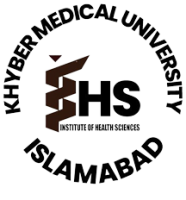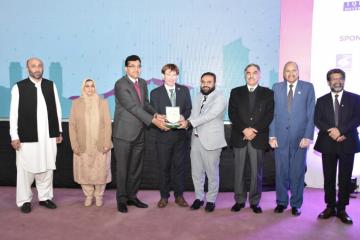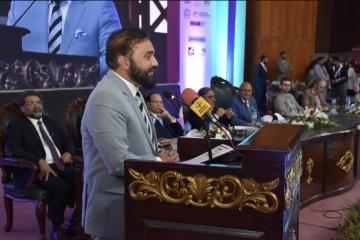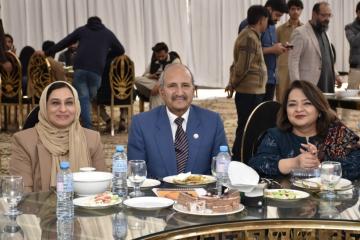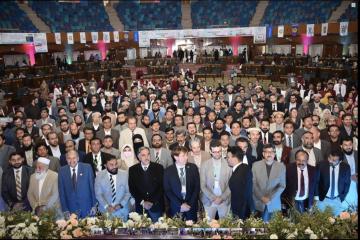PNQAHE 4th Annual International Conference Concludes in Islamabad with a Focus on Future-Proofing Quality Assurance in Higher Education
The Pakistan Network of Quality Assurance in Higher Education (PNQAHE) 4th Annual International Conference concluded at the Jinnah Convention Center in Islamabad. The conference was organized in collaboration with Khyber Medical University Peshawar, Khyber Medical University-Institute of Health Sciences Islamabad, Fatima Jinnah Women University Rawalpindi, Pakistan Institute of Fashion and Design Lahore, Riffah International University Islamabad, Sindh Agriculture University Tandojam, University of Child Health Sciences/Children's Hospital Lahore, Abdul Wali Khan University Mardan, University of Swabi, University of Gujrat, Iqra University Islamabad, and Pak-Austria Fachhochschule, Haripur.The primary objective of the conference was to focus on future-proofing quality assurance within higher educational institutions. This encompassed several key aspects and initiatives aimed at ensuring that academic quality standards remain robust and adaptable to the evolving landscape of higher education.
Distinguished national and international speakers and guests from around the globe graced the conference, including Dr. Fabrice Hénard from Paris, France; Dr. Jakub Grodecki from Poland; Dr. Bassam Al Hamad from Bahrain; Dr. Eltjo Bazen from the Netherlands; Dr. Selva Staub from Turkey; and Ms. Emilia Todorova from Gibraltar. They shared their insights in a series of workshops focusing on fostering quality education. Topics included Generative AI in Higher Education Policy, modern trends in teaching, Student Experience, Navigating Inclusion, and Adapting Quality Assurance for the Challenges Faced by Higher Education Institutions in Supporting Diverse Student Populations. The closing ceremony was graced by the esteemed presence of Engr. Imtiaz Gillani, Chairman National Technology Council (NTC), Islamabad and Ex Vice Chancellor UET Peshawar. VC KMU Prof. Dr. Zia Ul Haq, majority of VCs and Directors of all QECs HEIs were also grace the occasion.
Prof. Dr. Zia Ul Haq extended a warm welcome to the Chief Guest, all distinguished international keynote speakers, and participants. He expressed gratitude to the international speakers for their invaluable contributions in promoting academic cultural exchange and cooperation, enriching the conference experience, and fostering meaningful discussions.
Furthermore, Prof. Dr. Zia Ul Haq commended PNQAHE's unwavering commitment to prioritizing quality over quantity in higher education. He underscored the importance of cultivating a culture of continuous improvement, ensuring that academic quality remains paramount in educational endeavors. This steadfast dedication reflects PNQAHE's ongoing efforts to enhance academic excellence and instigate positive change within the academic community.
Chief Guest Engr. Imtiaz Gillani underscored the significance of PNQAHE as a platform for Pakistani universities to engage in rigorous self-evaluation and knowledge-sharing for collective advancement. He commended the leadership of Prof. Dr. Zia Ul Haq, President of PNQAHE, Dr. Aasiya Bukhari, Secretary-General of PNKAHE and organizers for orchestrating a successful conference.
The conference, spanning three days, featured sessions addressing critical issues in ensuring quality assurance for future accreditation in higher education. Noteworthy topics included the adoption of new technologies, embracing student diversity, sustainability in higher education, and strategic planning. Experts from prestigious institutions worldwide provided diverse perspectives on enhancing the quality of higher education in Pakistan and beyond.
Overall, the conference provided a platform for stakeholders to exchange ideas, share best practices, and collaborate on innovative solutions for future-proofing quality assurance in higher education. By addressing these key objectives, the conference aimed to ensure that higher educational institutions are well-equipped to adapt and thrive in an ever-changing educational landscape.
